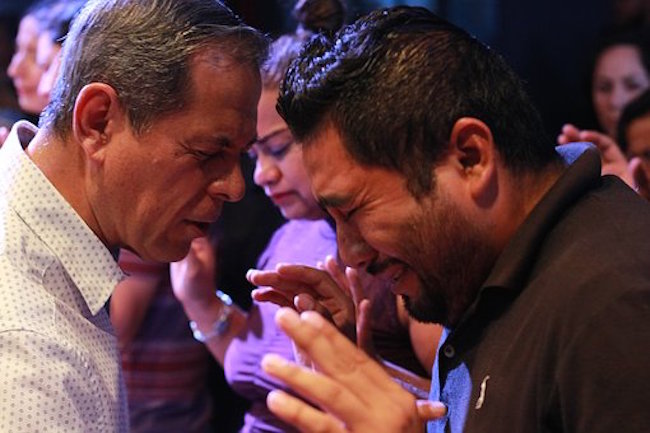HANDLING OUR DIFFERENCES REDEMPTIVELY, NOT DESTRUCTIVELY by Scotty Smith for Core Christianity
Trying to wrap my head and heart around the divisiveness that has marked so much public discourse lately, I spent some valuable time pondering three messy relational scenarios described in the New Testament. Each situation highlights how we, who are perfectly loved by Jesus, don’t easily handle our differences very well.
In fact, until Jesus returns and we are made perfect in love (1 John 4:17–19), remain quite capable of failing to love one another. The fact that the Bible records these broken stories actually makes it more trustworthy to me and encouraging to my weary heart. What can we learn from the situations? How are we who live with canceled sins to inhabit this cancel culture of ours?
First Scenario:
In Galatia, the debate over the relationship between God’s law and God’s grace got so intense, Paul had to warn the believers there about how their “biting and devouring one another” could lead to relational destruction among the churches in Galatia (Galatians 5:15). The inference seems to be that both legalists and grace-defenders joined in the verbal teardown. We can be just as self-righteous about the gospel of grace as we can the non-gospel of legalism.
Jack Miller, my spiritual father, used to refer to this as “Christian cannibalism.” It’s one thing to be passionate for the truth, but quite another to ignore—even sabotage the new command Jesus gave us, to love one another as he loves us (John 13:34–35). Paul’s parting word to believers in Galatia remains his abiding word for us: “The only thing that counts is faith expressing itself in love” (Galatians 5:6).
Second Scenario:
Not long after Pentecost, a heated situation emerged between two groups of Christians in the early church about widow care. A group of Jesus followers from a Hellenistic (Greek) Jewish background felt marginalized and slighted by believers from a Hebraic Jewish background. The issue was the daily distribution of bread for widows and the poor—the Hellenistic widows weren’t benefitting from this mercy ministry of the early church (Acts 6:1–7). What we learn from this situation, is that how we handle our differences is just as important as the issue itself.




